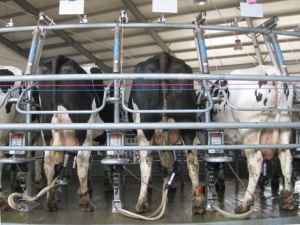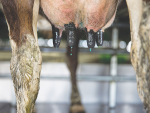National sales manager Colin May says many farmers are spending too much on teat spray – $20-25/cow annually.
“That’s extremely high and [usually a cost of] an automatic teat spray system. Managed well, an automatic system should average $12-13/cow.
“Manual teat spray costs should average only $7/cow.
“FIL’s new teatspray calculator… can help farmers manage cost, while matching mix rates to climatic challenges, making more effective and economical any teat spray programme.
May says the annual cost of teat spray divided by the number of cows will quickly show the cost per cow.
“Cost per cow is based on dilution rates and application rates…. The calculator quickly works out how much active ingredient is being applied per cow and its cost.”
The calculator breaks the year into three periods, enabling FIL area managers to cost out mixes for farmers to account for climatic challenges in the different periods of the year. It also helps to economise use rates and get better results by, for example, adding a teat conditioner.
Tel. 0800 833 377











